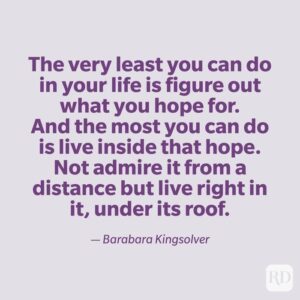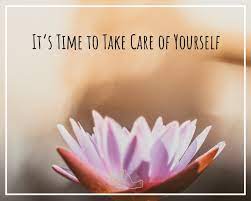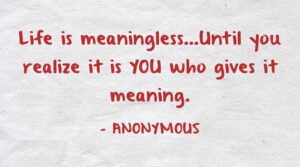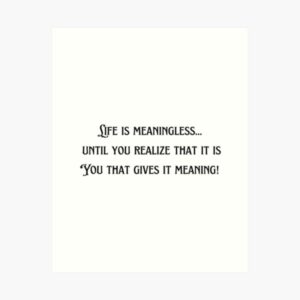by chandiniann | Feb 27, 2023 | Interesting Reads

As you read this blog, imagine yourself as the writer, exploring your own thoughts and feelings about self-love, self-esteem, and self-acceptance. Let the words guide you towards a deeper understanding and appreciation of yourself.
Developing self-love, self-esteem, and self-acceptance can be challenging for many individuals due to the societal pressure to conform to a certain standard of perfection. The constant comparison to seemingly perfect individuals on social media and in advertising can make us feel inadequate and unworthy of love and acceptance. Moreover, past experiences such as trauma, rejection, or criticism can also negatively impact our ability to develop a healthy sense of self-worth. It takes a considerable amount of time, effort, and sometimes even professional help to unlearn these harmful beliefs and patterns and cultivate a positive and compassionate relationship with ourselves.
For me, self-love, self-esteem, and self-acceptance are not just buzzwords, they are the building blocks of my inner strength and happiness. Understanding how they are different and connected has been crucial in my personal growth and development.
Self-love is not just about treating myself with kindness and respect, it’s about realizing that I am worthy of those things. It’s about prioritizing my needs and boundaries without feeling guilty or selfish. It’s about recognizing my flaws and imperfections and still valuing myself as a person.
My self-esteem is not based solely on external factors like my achievements or appearance, but on my belief in my own abilities and qualities. It’s about having a positive view of myself and my potential. It’s the confidence that I can face life’s challenges and reach my goals.
Self-acceptance is about acknowledging and embracing my true self, with all its strengths, weaknesses, and flaws. It’s about being genuine and authentic, without worrying about fitting in or meeting societal expectations. It’s about accepting my past mistakes and failures as part of my growth and journey, and not letting them define me.
These three concepts are interconnected and rely on each other. I can’t have self-esteem or self-acceptance without first loving myself. And without self-acceptance, I cannot truly love or esteem myself.
That’s why it’s crucial to cultivate all three in one’s life. It is necessary to practice self-love by prioritizing one’s own needs and boundaries, self-esteem by recognizing abilities and potential, and self-acceptance by embracing one’s true self, flaws and all.
Self-love, self-esteem, and self-acceptance are not just nice-to-have qualities, they are essential for well-being and personal growth. By understanding their differences and connections, it is possible to cultivate them and live a more fulfilling life. I am worth it, flaws and all, and I will strive towards becoming the best version of myself.
As an Emotional Intelligence trainer, I know first-hand the transformative power it can have in building self-love, self-esteem, and self-acceptance. Through developing emotional intelligence, we gain an understanding of our own emotions and how to manage them in a healthy way. This skill helps us focus on our strengths and develop resilience, leading to a boost in self-esteem. Furthermore, emotional intelligence allows us to recognise and accept our emotions, including the ones that make us uncomfortable, promoting self-acceptance. By honing these skills, we can form a kinder and more positive relationship with ourselves, which is crucial for our personal growth and overall well-being.

by chandiniann | Feb 24, 2023 | Interesting Reads

Despite feeling insurmountable, HOPE is crucial now more than ever before.
I won’t sugarcoat it – the current state of affairs is grim. The COVID-19 pandemic, its monstrous repercussions, and the impending recessions – well it’s easy to feel hopeless. People are struggling to make ends meet, and even those who were once secure are facing unexpected challenges.
In these unprecedented times, it can be hard to envision a brighter future. However, cultivating hope is crucial, and it starts with consciously working towards a better future and accepting that the future is unknown and unknowable. While it’s understandable to feel hopeless, acknowledging that feeling is the first step towards building resilience. While it’s always difficult to maintain hope, especially during times like these, it’s not impossible. In fact, it may be the key to surviving mentally in the current state of the world.
Even after so many years, hope still motivates me. It’s not about wishing my problems away or being delusional, but having a clear vision of what I want to achieve. When I have a specific goal in mind, I can take action towards achieving it, which makes me feel more in control and less stressed. Hope gives me a sense of empowerment and the determination to keep going.
Hope doesn’t necessarily mean everything will always be perfect, but it’s about realistic expectations that good things can happen and that we have some control over the outcome. Even in situations where we have no control, resilience can help us accept what we cannot change and find alternative solutions.
Hope has been linked to numerous positive outcomes such as increased happiness, improved academic performance, and even reduced risk of mortality. It’s a crucial element for navigating difficult situations, as well as achieving daily objectives. The benefits of hope are accessible to all, as research suggests that nearly anyone can learn to be more hopeful.
One’s level of hopefulness does not depend on one’s IQ or income level, as hope is equally available to all individuals. It certainly can be built through #emotionaintelligence. Emotional intelligence (EI) is the vital intersection where our cognitive and emotional faculties converge. It plays a crucial role in building resilience, fostering motivation, enhancing empathy, sharpening reasoning skills, managing stress, improving communication, and deftly navigating complex social situations and conflicts. Cultivating high EI is key to unlocking a more fulfilling and joyful existence. It is a critical skill that has the power to transform our lives for the better.
Here’s to Hope!

by chandiniann | Feb 20, 2023 | Interesting Reads

Throughout my life, I’ve come to realize that many of us seek to find a deeper meaning in our existence by connecting with spirituality on both a personal and collective level. Questions about our identity, purpose, and the meaning of life are universal, and we all ponder them at some point.
The world can be both beautiful and cruel, and it’s up to us to determine which outweighs the other. Whether we believe that life is meaningless or not depends on our temperament. Personally, I hold on to the hope that meaning will ultimately triumph over meaninglessness.
As a person who cares deeply, I often grapple with the concept of suffering and the search for meaning in life. While questioning the meaning of life may seem like a task reserved only for the extraordinary few, I believe that it’s something that we all should consider.
At the end of our lives, we may look back and feel like some of our dreams were left unfulfilled, we experienced pain that we couldn’t overcome, and relationships that couldn’t be mended. But we will also remember the moments of value that sustained us, moments when we followed a higher logic and when our lives had meaning. It’s important to remember that we can all draw meaning from our own lives in our own unique way.
Finding meaning in life is not an easy task, and there may be times when we feel lost and uncertain. However, by connecting with our spirituality and reflecting on our values, we can find purpose in even the most difficult of circumstances. Recognizing that there is both meaning and meaninglessness in life allows us to appreciate the value of each moment and live a more fulfilling and meaningful life.







